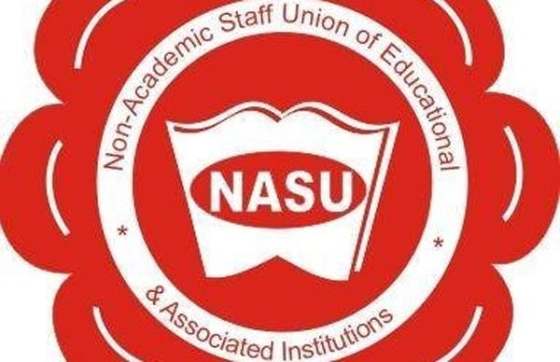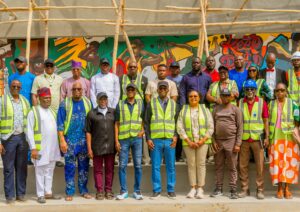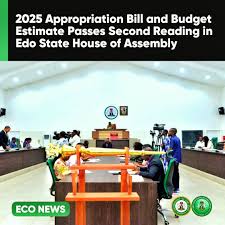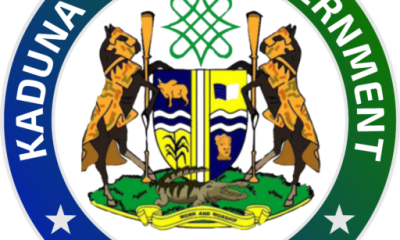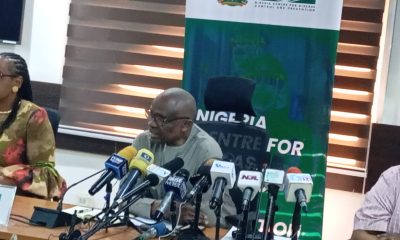Economy
How we Spent COVID-19 Funds so Far- FG
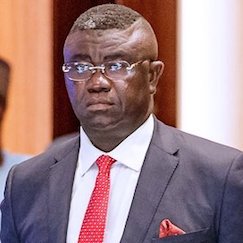
Prince Clem Agba, Minister of State, Ministry of Budget and National Planning, on Thursday gave a breakdown of the COVID-19 expenditure in the country.
Agba revealed this at the COVID-19 Transparency and Accountability Project (CTAP) Conference organised by Connected Development (CODE) in partnership with BudgIT civil society organisation in Abuja.
According to Agba, of the N500 billion COVID-19 funds, N288billion has been released to implementing agencies to support programmes and Federal Government, while the Ministry is now in the process of releasing additional sum to Ministries, Departments and Agencies (MDAs).
“The total package includes, N500billion stimulus from special federal government account in the budget, and a N1.
8 trillion through financial institutions.“From the N500 billion stimuli from the revised 2020 budget there is provision of 126 billion to build resilience health system in Nigeria to prevent possible loss of lives.
“The government set out to improve health infrastructure by building molecular labs in 52 federal medical centres and teaching hospitals across the country.
“Others include provision of isolation centres, paying hazard allowance for health professionals, providing personal protective equipment for security agencies and hospitals to continue their operations supporting agencies like the NCDC, NAFDAC among others to play their roles in combating this pandemic.’’
Agba said that a total of 522 ICU beds were provided amounting to 10 ICU beds in each of the 52 federal medical centers and teaching hospitals across the country.
He said that the Federal Government also took measures to support states respond to the pandemic, adding that in the first instance, 50 per cent of the 500 billion was released to the various responsible agencies.
He added that each of the 36 states including the FCT were given a billion Naira to help fight COVID-19 except for Lagos that got 10 billion and Kano that got 5 billion due to their population.
“Most of the MDAs received at least 50 per cent of the budget for projects, like Ministry of Agriculture which has N34 billion as budget for rural roads was given 50 per cent of that amount and they were also given 50 per cent of the amount for land preparation which is N1.25 billion.
“The mass rural electrification and solar power strategy had N6.2 billion released to them FERMA received 30 billion for bridges and major roads, Ministry of Trade and Investment got N75 billion MSME programmes, while federal medical centres with about N49 billion budget received 50 per cent of that amount allocated .’’
Agba said that the government also put all loan repayment by the various state governments on hold, this included repayment of both the principal loan and the accrued interest.
He said that this was to stimulate the economy and prevent job loss, adding that the plan included supporting micro small and medium enterprises through survival funds .
He said that this provision included MSME guaranteed uptake simulation scheme that was to sustain 300,000 jobs in 100,000 MSME by generating uptake and priority products ,extending payroll supports and establishing facilities in all six geopolitical zones.
He said that the establishment of the MSME survival fund was to also sustain 700,000 jobs in 140,000 MSME and 1500 self employed individuals through grants in all six geo political zones.
Agba said that the government also provided over 12 billion mass rural electrification and solar power and N60 billion for road construction and rehabilitation across the country.
He added that the public works programmes recruited 1000 persons per local government for the 36 states and the FCT resulting in 774,000 persons being employed.
He said that the president directed the disbursement of COVID-19 cash transfer to additional 1million households as part of the social intervention programmes to protect the vulnerable adding that the register was being updated with the new households ahead of disbursement.
He said that there was provision for the aviation sector with support to local airlines as well as other aviation business and also provision for post COVID job creation schemes for youths and women .
Agba said that there were provisions targeted at the agric sector to ensure food and job security and to achieve this, government plans included mapping of farms and farmers registration, site sampling and creating access roads to markets among others.
He said that this took the form of building more than 300 roads across 266 agro communities for access.
Agba also took timeout to clarify some misconception about Nigeria’s stimulus response to COVID-19 .
“It is false, that Nigeria received 5.6 billion dollars as donations towards COVID-19, you know, the pandemic impacted the global oil market which reduced Nigeria’s revenue by about 57 per cent due to reduced oil price.
“Nigeria obtained these loans of 5.6 billion dollars from the world bank, the IMF, the Islamic development bank and the African development bank as budget financing for the revenue shortfall so they were not donations.
“The 2.3 trillion stimulus package comprise the N500 billion stimulus from special federal government account in the reversed 2020 budget and N1.8 trillion through CBN interventions to the private sector to stimulate the economy.
“So the 1.8 trillion are not funds that are going to MDAs ,they are meant for the private sector.’’
Agba said that other donations in kind, received by the federal government included personal protective equipment ,test kits and 200 ventilations as bilateral support .
He said that the president approved the release of 70,000 tons of food from the federal strategic grain reserve and they were distributed to state governments as palliatives for distribution to citizens .
He, therefore, said that it should not be said that federal government was involved in the hoarding of palliatives.
Agba said that the Federal Government had ensured that several accountability mechanisms were put in place to guarantee the proper utilisation of these funds and an app was being developed to help citizens keep abreast with the utilization of these funds.
Chief Executive Officer, CODE, Hamzat Lawal, said that the conference was organised in partnership with BudgiT ,to point the torch on the role of state actors, stakeholders, civil society organisations and citizens in the accountability process of the COVID-19 intervention Funds.
Lawal said that CSOs were very much concerned with expenditure knowing that there was a short fall of revenue and knowing that there was increase in unemployment.
He said that data revealed that there was an increase in loan both from IMF and other multilaterals adding that “we have not seen a clear cut strategy from government on how these loans would be paid.
“How the government is engaging young people and how are they planning to pay back the loan, how is the government using this loan?
“ We are not satisfied with the implementation of COVID-19 funds and how the government is providing palliatives and stimulus plans, when you put side by side the resources released and what is happening on ground definitely we are not satisfied.’’
Lawal expressed hope that deliberations at the conference would go a long way to amend some things , because since the beginning of the COVID-19 ,there had not been any meeting like this that brought key stakeholders particularly government officials saddled with the responsibility to oversee the disbursement of COVID-19 resources together.
“So I am excited that CODE in partnership with budgiT is able to bring stakeholders together and get government officials answer critical questions to provide directions .
“This is because with the advent of fake news and misinformation, it is pertinent that government is able to respond proactively to provide timely information for citizens so that we can remain united as we fight the pandemic.’’(NAN)
Economy
Stockbrokers Propose Strategies to Grow $1trn Economy

Nigerian Stockbrokers have proposed strategies by which the Federal Government can deepen the capital market to achieve its proposed one trillion dollar economy.
They made the proposal in a communique signed by Mr Oluropo Dada, President/Chairman of Council of Chartered Institute of Stockbrokers (CIS), and the Registrar/Chief Executive of CIS, Dr Josiah Akerewusi.
The communique was from the 28th Annual Conference of CIS held in Ibadan with the theme: “Capital Market as Catalyst for The One Trillion Dollar Economy’’.
Dada said that, if adhered to, the proposed strategies would help the government to achieve its goal without increasing borrowing.
He urged the Federal Government to list Nigerian National Petroleum Company Ltd.
and moribund state enterprises on the secondary markets.According to him, this is to deepen the markets, enhance the companies’ ability to make profit and generate revenue for the government through tax.
The CIS president also said that there was the need to rebase Nigeria’s Gross Domestic Product (GDP) to reclaim the country’s status as Africa’s largest economy to create opportunities to achieve the one trillion dollar target.
Dada urged policies that would incentivise indigenous and privatised companies as well as Small and Meduim Enterprises (SMEs) to list on the Nigerian capital market.
He said that the informal economy constituted a significant portion of Nigeria’s GDP but remained largely untapped by the capital market.
“Government should conclude the ongoing review of Investment and Securities Act while capital market regulators should review relevant rules and laws in line with global best practices,’’ he said.
According to him, this will boost investor confidence, create a favourable business environment for listed companies and remove restrictions hindering liquidity access for stockbrokers.
“The Nigerian capital market should be integrated into Fintech solutions, blockchain technology and other digital innovations to enhance accessibility, efficiency, transparency and attraction of Millennials, Gen Z, Gen Alpha, among others.
“Market operators should also develop products that attract investment appetite of the technology-savvy youths,” he said.
According to him, the government should address foreign exchange challenges and other inhibitions to participation of foreign investors in Nigeria.
“This will also enhance Foreign Direct Investment.’’
Dada said there was a huge knowledge gap among investors, urging that financial literacy programmes should be pursued with renewed vigour.
He said that financial literacy should cut across all segments of investors and would require collaboration of market regulators with all stakeholders.
He said: “The Nigerian capital market should reflect the key sectors such as agriculture, oil and gas to better align with GDP composition and provide opportunities for capital formation and mobilisation.
“Government at all tiers in Nigeria should leverage more on the capital market to raise long-term funds for infrastructure development,’’ he said.
Dada said that this should be done by issuing project-tied bonds with irrevocable standing payment order which would remove the risk of default.
“In order to relieve itself of perennial debt overhang, Nigeria should opt for debt restructuring and extension of maturity period to enable it to manage its resources for the overall development of the economy.
“On the monetary side, the Central Bank of Nigeria should intensify tight monetary policy to control inflation.
“Government should exploit opportunities in the commodities ecosystem to grow the GDP. Commodities Ecosystem remains a niche market in Nigeria.
“Government should implement the policies enunciated to strengthen commodity trading and commodity exchanges to enhance export trades, generate forex, boost external reserve and strengthen the Naira.’’
According to him, government should also implement structural reforms, including deregulation, debt management and public awareness campaigns by collaborating with the market stakeholders to unlock Nigeria’s economic potential.
Dada said that the government should put in place policies to attract private equity, venture capitalists and angel investors, adding that at all tiers of the government should leverage tariff policies to support local industries.
This, he said, would pave way for participation of private equity, venture capitalists and angel investors to support the growth of SMEs. (NAN)
Economy
Minister Says Upgrading MAN to Varsity will Unlock Maritime Opportunities

Mr Adegboyega Oyetola, the Minister of Marine and Blue Economy says upgrading the Maritime Academy of Nigeria (MAN), Oron to a university, will unlock opportunities in the maritime economy.
Oyetola made the expression at the 2024 MAN cadets graduation ceremony in Oron, Akwa Ibom on Saturday.
Represented by Mr Babatunde Bombata, the Director, Maritime Safety and Security, the minister said the Federal Government was working assiduously to unlock opportunities within the marine and blue economy.
He said that the ministry was already collaborating with the Ministry of Education and the Nigerian Universities Commission to ensure MAN’s seamless transition to a university.
“It is our hope that this upgrade will unlock new opportunities for advanced learning, cutting edge research and innovation within the marine and blue economy fields,” he said.
Oyetola urged the graduating cadets to be innovative, resourceful and forward looking in their future endeavours.
“The maritime and blue economy sectors are filled with opportunities, so your contributions to the sector will be instrumental in ensuring a brighter future.
“The government is committed to fostering excellence and innovation in these fields, and we eagerly anticipate the positive impact you will make in your careers,” he said.
He further said that the Federal Government was working on developing a national policy on marine and blue economy.
“This policy will serve as a strategic framework to drive economic diversification, attract investments, create jobs and youth empowerment.
In his remarks, Gov. Umo Eno of Akwa Ibom, said the state government would continue to collaborate with the academy to develop the maritime sector.
Represented by the Commissioner for Internal Security and Waterways, Gen. Koko Essien, (Rtd), Eno urged the graduating cadets to utilise their training in developing the maritime sector.
“I am hopeful that you will utilise the training you have acquired here to further your career as seafarers and in the development of our blue economy,” he said.
Eno commended the Acting Rector, Dr Kevin Okonna and his management team for their commitment towards repositioning the academy for greater results.
Earlier, Okonna said that graduates of the institution had contributed immensely to the growth of Nigeria’s maritime and blue economy.
“Today, we have an opportunity to celebrate a new set of well-trained personnel to the maritime and allied industries.
“We pride ourselves as the pioneer maritime training institution, this is because of the institution’s contributions to national development,” he said.
The acting rector urged the graduating cadets to made effective use of the knowledge gained during their training to make meaningful impact on the growth of the maritime sector.
Report says that awards were given to graduating cadets who distinguished themselves in character and learning. (NAN)
Economy
Investors Gain N183bn on NGX

The Nigerian Exchange Ltd. (NGX) continued its bullish trend on Wednesday, gaining N183 billion.
Accordingly, the market capitalisation, which opened at N59.532 trillion, gained N184 billion or 0.31 per cent to close at N59.715 trillion.
The All-Share Index also added 0.31 per cent or 303 points, to settle at 98,509.
68, against 98,206. 97 recorded on Tuesday.Consequently, the Year-To-Date (YTD) return increased to 31.
74 per cent.Gains in Aradel Holdings, Zenith Bank, United Bank For Africa(UBA), Oando Plc, Nigerian Breweries among other advanced equities drove the market performance up.
Market breadth closed positive with 34 gainers and 17 losers.
On the gainers’ chart, Africa Prudential, Conoil and RT Briscoe led by 10 per cent each to close at N14.30, N352 and N2.42 per share, respectively.
Golden Guinea Breweries followed by 9.95 per cent to close at N7.18, while NEM Insurance rose by 9.74 per cent to close at N10.70 per share.
On the other hand, Julius Berger led the losers’ chart by 10 per cent to close at N155.25, Secure Electronic Technology Plc trailed by 9.52 per cent to close at 57k per share.
Multiverse lost 7.63 per cent to close at N5.45, Haldane McCall dropped 6.07 per cent to close at N4.95 and Honeywell Flour shed 5.62 per cent to close at N4.70 per share.
Analysis of the market activities showed trade turnover settled lower relative to the previous session, with the value of transactions down by 49.44 per cent.
A total of 320.10 million shares valued at N6.48 billion were exchanged in 7,943 deals, compared with 939.41 million shares valued at N12.81billion traded in 9,098 deals posted in the previous session.
Meanwhile, ETranzact led the activity chart in volume with 70.27 million shares, while Aradel led in value of deals worth N1.22 billion.(NAN)







